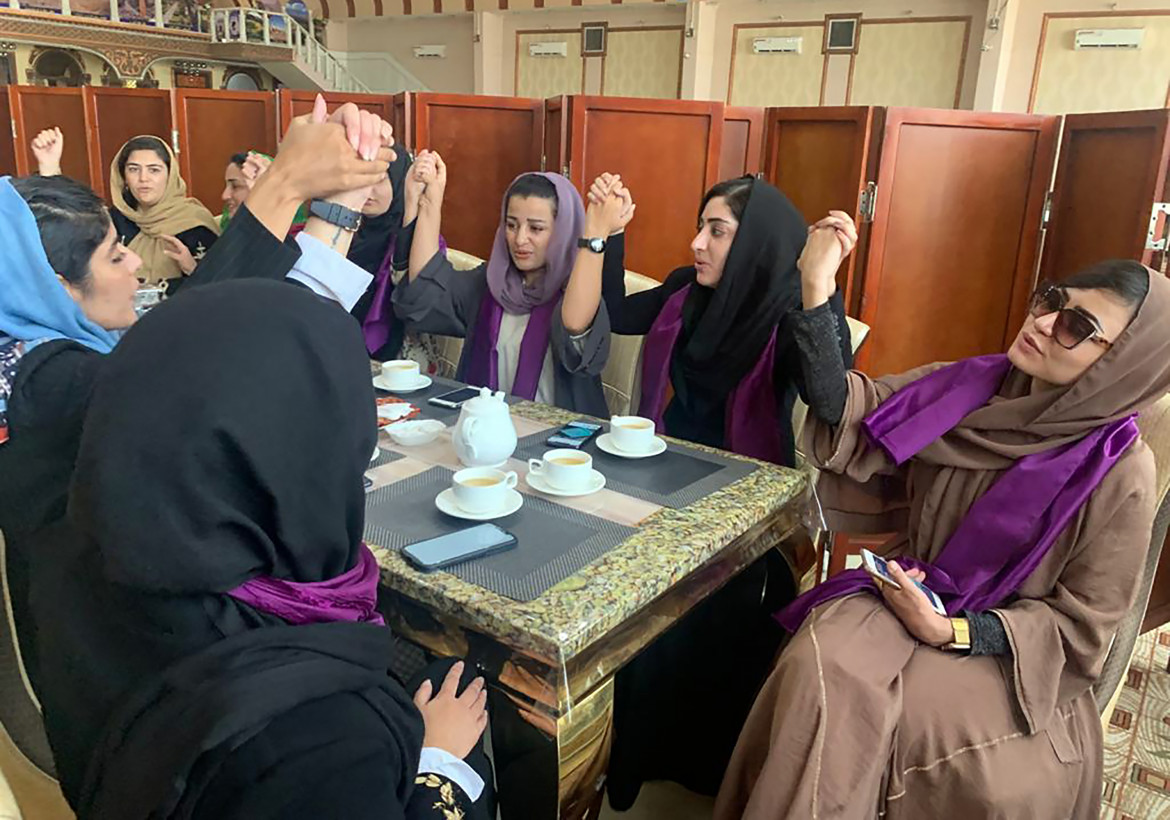Reportage
In ‘Talibanistan,’ activists and journalists are no longer seen
Any broadcasters still working only repeat slogans instead of reporting information. Those who fought for rights are hiding or have turned up dead.

“There is no more room for civil society. Look what happened to Foruzan Safi.” Fardin Nawrazi used to be a journalist. Then the Taliban came, and he had to change his life. “Look at me: I even changed the way I dress. I don’t wear a tie anymore. And I never wore the traditional head cover before. I’m a different person now.”
He is not afraid of putting himself out there in a foreign newspaper: “The Taliban know what I did, who I am. But I don’t show my face around as much. And most of all, I’m no longer doing my job, which I loved.”
He worked for years as a freelance journalist, for radio stations, websites, newspapers, local TV and others, in the province of Balkh, with Mazar-e-Sharif as its capital. He was the head of AIJA, the Afghanistan Independent Journalists Association, for the entire northern part of the country.
“We freelancers have been screwed over, here in Mazar: the bigwigs have been evacuated, the editors of the newspapers, those with the right connections, but we were left here. Some people took away their relatives and friends, instead of their colleagues, as they should have done. We have written letter after letter, sent emails to everyone abroad, but no one has given us help, no one is listening to us. Maybe someone from Italy can help us?” Here, Nawrazi continues, “it’s dangerous for every one of us, men and women.” And one can no longer work, unless one accepts the conditions imposed by the Islamic Emirate.
“The Taliban demand to see and check every single news item before publication. There is no more information, no more freedom of expression,” Nawrazi says. “Slogan after slogan, nothing but slogans, that’s what they’re putting on the national television network.”
Another journalist speaks up. He too asks us to look at his outfit. He too has changed his style. But unlike Nawrazi, he has kept his post, on national TV. “Before, there was some form of independence, freedom, there were different shows, more critical ones. Now we are under the responsibility of the Ministry of Culture. All we do is repeat slogans, nothing but slogans,” he explains as we walk through the chaotic city market. He prefers not to give his name. “Real news is no longer delivered.”
Information is traveling on private channels—between the phones of the activists left in Mazar-e-Sharif. There are those who have barely left their homes since the Taliban seized power in mid-August. There are those who have preferred to move to Kabul, where they are not well-known. And then, there are those who disappear for days, only to be found dead.
This was the case with Foruzan Safi, barely 30 years old. An activist, rather well known in the city for her work, with particular focus on women’s rights, as well as for her university lectures and for having supported the demonstration held in Mazar-e-Sharif on September 6th and some subsequent ones held online.
Back then, the Taliban allowed the demonstration to proceed from the provincial council headquarters to the Hazrat Ali mosque in the city center. Then, they followed some of the protesters. Of the 35 they detained, five remained in jail, one of them for 14 days. “The first six days without water or food. And beaten repeatedly.”
The news of Foruzan Safi’s disappearance had been circulating in the city for days. “Foruzan’s mother called me: she was worried because her daughter hadn’t come home for two days,” another activist tells us. She is 26 years old, and one of those who has chosen to avoid been seen for a good two and a half months. She agreed to meet us, but in a safe location, at the apartment where she lives with her family.
“I’m a women’s rights activist. Or at least I used to be. I used to go to rural districts to explain why you have to fight for women’s rights, against violence against women.” She was used to putting herself out there, and was doing so just days before the Taliban seized power.
This young activist could not give any good news to Foruzan Safi’s mother, whom we contacted but who chose not to meet with us. Her daughter’s body was found two days ago, apparently together with three other women’s bodies, in a suburban area of the city. “Who was it that killed her? We all know it, but no one can say it in public. Otherwise we’ll end up the same as her.”
For the activists in Mazar-e-Sharif, its’ clear who the perpetrators are, even if these targeted killings—not the only ones in the country—are not officially claimed. They serve to send unmistakable signals. Just like the jailing of the organizers of the public protest in September.
“After that, there were no more protests. Of course, there are the online ones, but that’s something else,” continues the 26-year-old activist, who prefers to remain anonymous.
Originally published at https://ilmanifesto.it/nel-talebanistan-attiviste-e-giornalisti-non-si-vedono-piu/ on 2021-11-05
